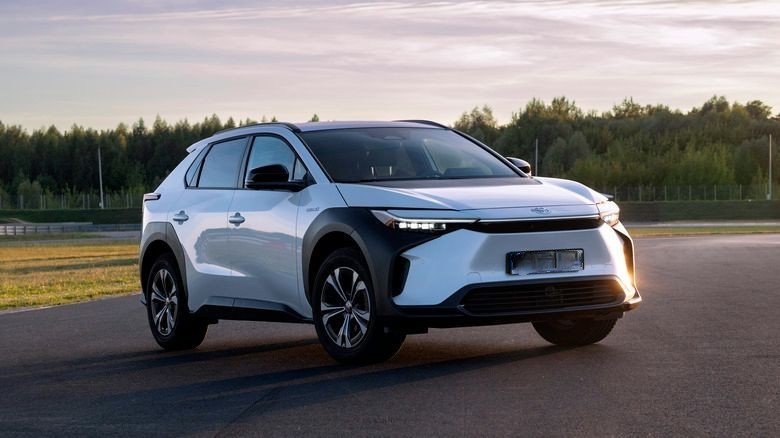Toyota Challenges Viability of EVs in Australia

Toyota Challenges Viability of EVs in Australia
Toyota has once again raised concerns about the practicality of electric vehicles (EVs) in the Australian context. The automaker claims that EV are not yet ready for Australian roads, questioning their green credentials and asserting that they remain "impractical for the vast majority of Australian motorists." This critique, however, has ignited a spirited debate within the country's automotive sector.
Toyota's Controversial Stance Draws Strong Reactions
Toyota's comments have been met with skepticism by popular electric car brands and industry groups, labeling the critique as a "cynical" attack by a company they perceive as "too slow off the mark." These detractors argue that Toyota risks lagging in the race for the future of the automotive industry.
Electric Vehicle Market on the Rise Despite Toyota's Concerns
Despite Toyota's reservations, the electric vehicle market in Australia has been on the rise, with sales more than doubling. Additionally, impending legislation promises to boost the supply of EVs in the country.
- Toyota's Hybrid Alternative: Sean Hanley, the vice president of sales at Toyota Australia, made the controversial statements during the Japan Mobility show. He suggested that hybrid vehicles are "a better fit" for Australian motorists and might offer greater environmental benefits.
- Tesla's Swift Response to Toyota's Claims: Hanley's comments, however, prompted a swift response from Tesla's vice president of public policy, Rohan Patel. Patel pointed to Australia's growing use of renewable electricity, stating that thousands of drivers were using "100% clean energy from the sun" to power their EVs. Australia's renewable energy sources generated 32% of the country's electricity in the previous year, mainly from solar, wind, and hydropower.
- Impact on the Local Industry and Economy: Behyad Jafari, the chief executive of the Electric Vehicle Council, emphasized that Toyota's comments could potentially harm a thriving local industry. In 2022, Australia produced more lithium, a key element in EV batteries, than any other nation. Jafari argued that Toyota's stance goes against the best interests of Australian consumers and the country's economy.
Evolving Market Dynamics
While Toyota remains the top-selling brand in Australia, its market share has been dwindling, with electric vehicle market share on the rise. Electric rival Tesla, in particular, has seen substantial growth in sales. The Electric Vehicle Association's national president, Chris Jones, noted that the increasing popularity of EVs is due to the arrival of more electric models that are cost-competitive and environmentally friendly. Jones explained that in many cases, the cost difference between a hybrid vehicle and a full-electric model is relatively small, making EVs a more financially appealing choice over time.
Electric Vehicles Gain Momentum in Australia
Despite some exceptional use cases, such as towing extremely heavy loads in challenging driving conditions, the consensus among industry experts is that electric cars now meet the needs of the majority of Australian motorists and are an increasingly attractive option. The debate ignited by Toyota's comments reflects the evolving dynamics of the Australian automotive market as electric vehicles gain traction.
Toyota
Electric Vehicles
EVs in Australia
Australian Automotive Market
Tesla
Electric Vehicle Viability
Toyotas Critique
Teslas Response
Automotive Industry
Hybrid Vehicles
Renewable Energy
Electric Vehicle Council
Australian Economy
Toyota vs Tesla
EV Debate in Australia
« PREV POST
China's All-New BJ40 Production Begins
China's All-New BJ40 Production Begins
Related Auto News Updates
Toyota Latest Discussions
Comments
New 2025 Car Comparisons





















Add a Comment "Toyota Challenges Viability of EVs in Australia"